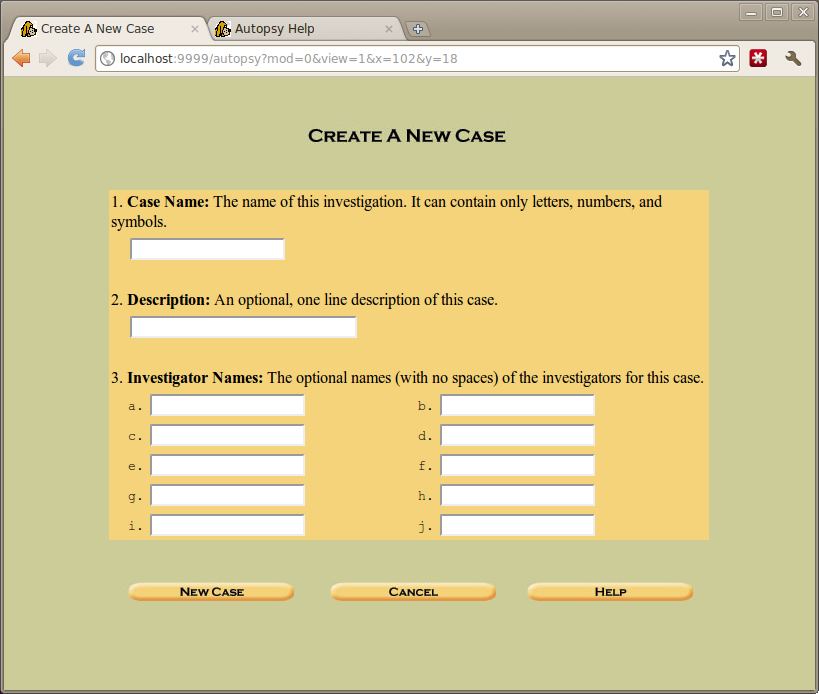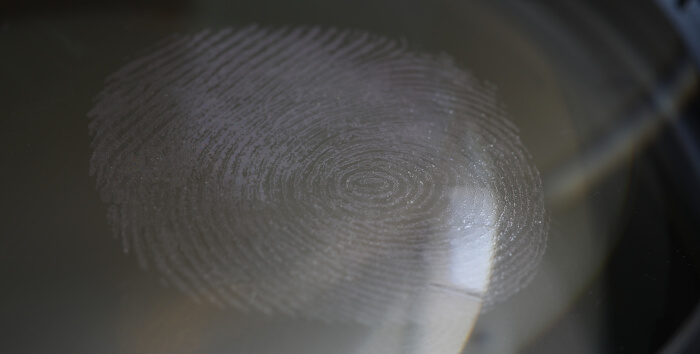The Autopsy Forensic Browser is a graphical interface to the command line digital investigation tools in The Sleuth Kit. The two together enable users to investigate volumes and file systems including NTFS, FAT, UFS1/2, and Ext2/3 in a ‘File Manager’ style interface and perform key word searches.
TSK and Autopsy will show you the files, data units, and metadata of NTFS, FAT, EXTxFS, and UFS file system images in a read-only environment. Autopsy allows you to search for specific types of evidence based on keywords, MAC times, hash values, and file types.
Autopsy is HTML-based and uses a client-server model. The Autopsy server runs on many systems and the client can be any platform with an HTML browser. This enables one to create a flexible environment with a central Autopsy server and several remote clients. For incident response scenarios, a CD with The Sleuth Kit and Autopsy can be created to allow the responder read-only remote access to a live suspect system from an HTML-browser on a trusted system. Refer to the README-live.txt file for more details.
Autopsy will not modify the original images and the integrity of the images can be verified in Autopsy using MD5 values.
Features include:
- Analyze the files and directories, including the names of deleted files and files with Unicode-based names.
- The contents of files can be viewed in raw, hex, or the ASCII strings can be extracted.
- Lookup unknown files in a hash database to quickly identify it as good or bad.
- Sort the files based on their internal signatures to identify files of a known type. Autopsy can also extract only graphic images (including thumbnails). The extension of the file will also be compared to the file type to identify files that may have had their extension changed to hide them.
- Create timelines that contain entries for the Modified, Access, and Change (MAC) times of both allocated and unallocated files.
- Keyword searches of the file system image can be performed using ASCII strings and grep regular expressions.
- Meta Data structures contain the details about files and directories. Autopsy allows you to view the details of any meta data structure in the file system.
- View the contents of any data unit in a variety of formats including ASCII, hexdump, and strings.
- File system details can be viewed, including on-disk layout and times of activity.
- Supports raw, Expert Witness, and AFF file formats.
Website: www.sleuthkit.org/autopsy
Support: Wiki
Developer: Brian Carrier
License: GNU General Public License v2.0

Autopsy is written in C and Perl. Learn C with our recommended free books and free tutorials. Learn Perl with our recommended free books and free tutorials.
| Popular series | |
|---|---|
| The largest compilation of the best free and open source software in the universe. Each article is supplied with a legendary ratings chart helping you to make informed decisions. | |
| Hundreds of in-depth reviews offering our unbiased and expert opinion on software. We offer helpful and impartial information. | |
| The Big List of Active Linux Distros is a large compilation of actively developed Linux distributions. | |
| Replace proprietary software with open source alternatives: Google, Microsoft, Apple, Adobe, IBM, Autodesk, Oracle, Atlassian, Corel, Cisco, Intuit, SAS, Progress, Salesforce, and Citrix | |
| Awesome Free Linux Games Tools showcases a series of tools that making gaming on Linux a more pleasurable experience. This is a new series. | |
| Machine Learning explores practical applications of machine learning and deep learning from a Linux perspective. We've written reviews of more than 40 self-hosted apps. All are free and open source. | |
| New to Linux? Read our Linux for Starters series. We start right at the basics and teach you everything you need to know to get started with Linux. | |
| Alternatives to popular CLI tools showcases essential tools that are modern replacements for core Linux utilities. | |
| Essential Linux system tools focuses on small, indispensable utilities, useful for system administrators as well as regular users. | |
| Linux utilities to maximise your productivity. Small, indispensable tools, useful for anyone running a Linux machine. | |
| Surveys popular streaming services from a Linux perspective: Amazon Music Unlimited, Myuzi, Spotify, Deezer, Tidal. | |
| Saving Money with Linux looks at how you can reduce your energy bills running Linux. | |
| Home computers became commonplace in the 1980s. Emulate home computers including the Commodore 64, Amiga, Atari ST, ZX81, Amstrad CPC, and ZX Spectrum. | |
| Now and Then examines how promising open source software fared over the years. It can be a bumpy ride. | |
| Linux at Home looks at a range of home activities where Linux can play its part, making the most of our time at home, keeping active and engaged. | |
| Linux Candy reveals the lighter side of Linux. Have some fun and escape from the daily drudgery. | |
| Getting Started with Docker helps you master Docker, a set of platform as a service products that delivers software in packages called containers. | |
| Best Free Android Apps. We showcase free Android apps that are definitely worth downloading. There's a strict eligibility criteria for inclusion in this series. | |
| These best free books accelerate your learning of every programming language. Learn a new language today! | |
| These free tutorials offer the perfect tonic to our free programming books series. | |
| Linux Around The World showcases usergroups that are relevant to Linux enthusiasts. Great ways to meet up with fellow enthusiasts. | |
| Stars and Stripes is an occasional series looking at the impact of Linux in the USA. | |
